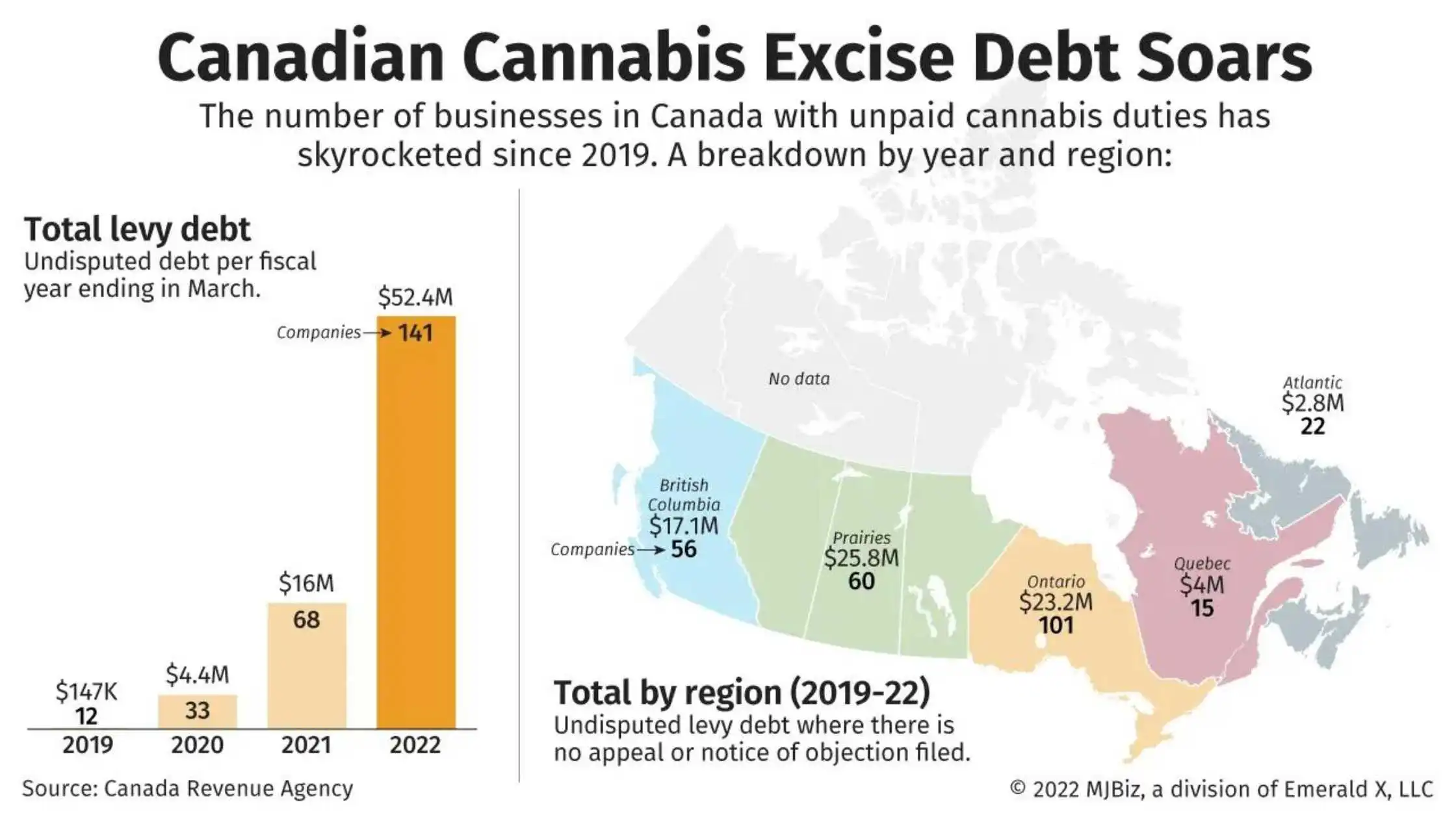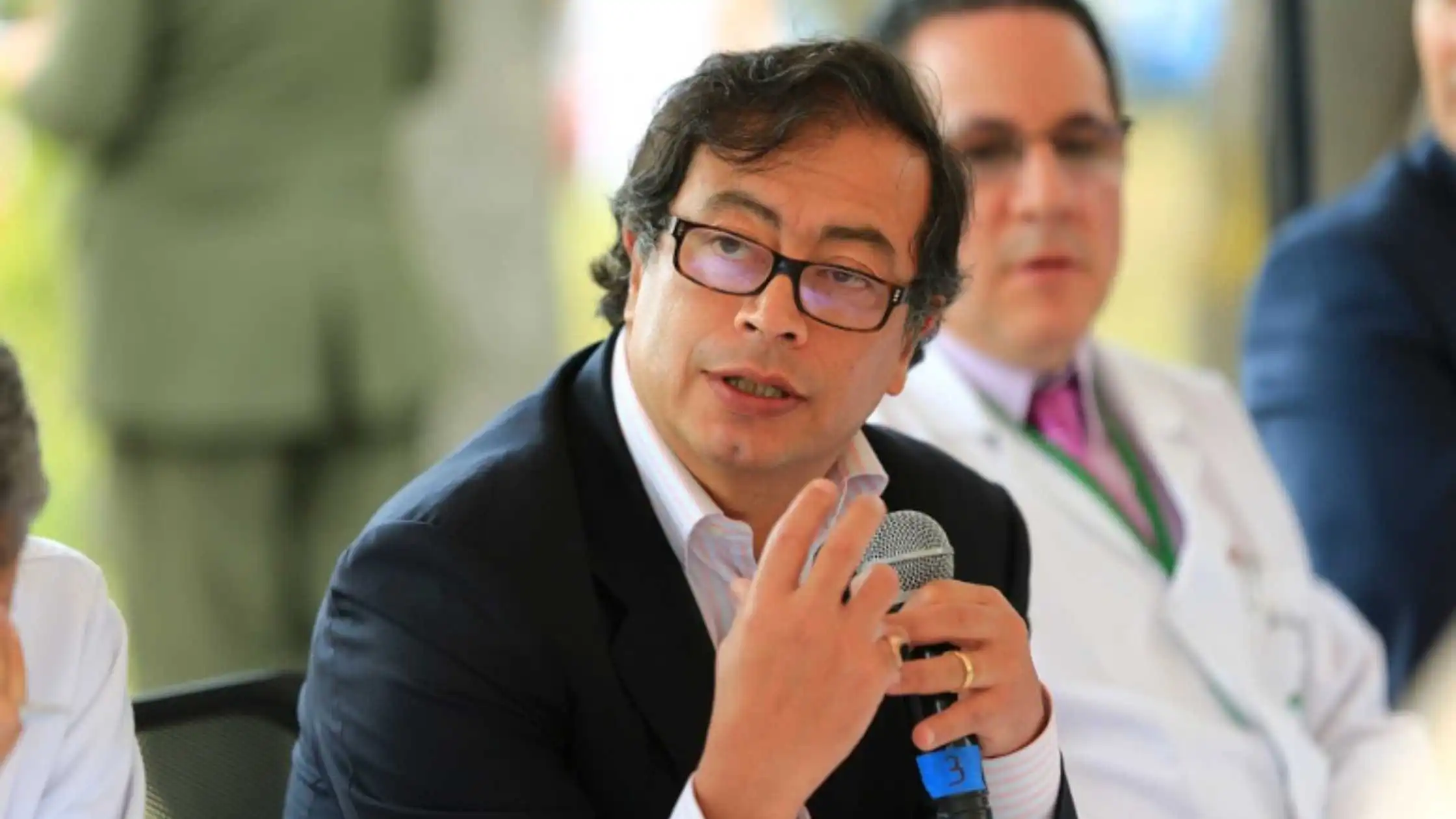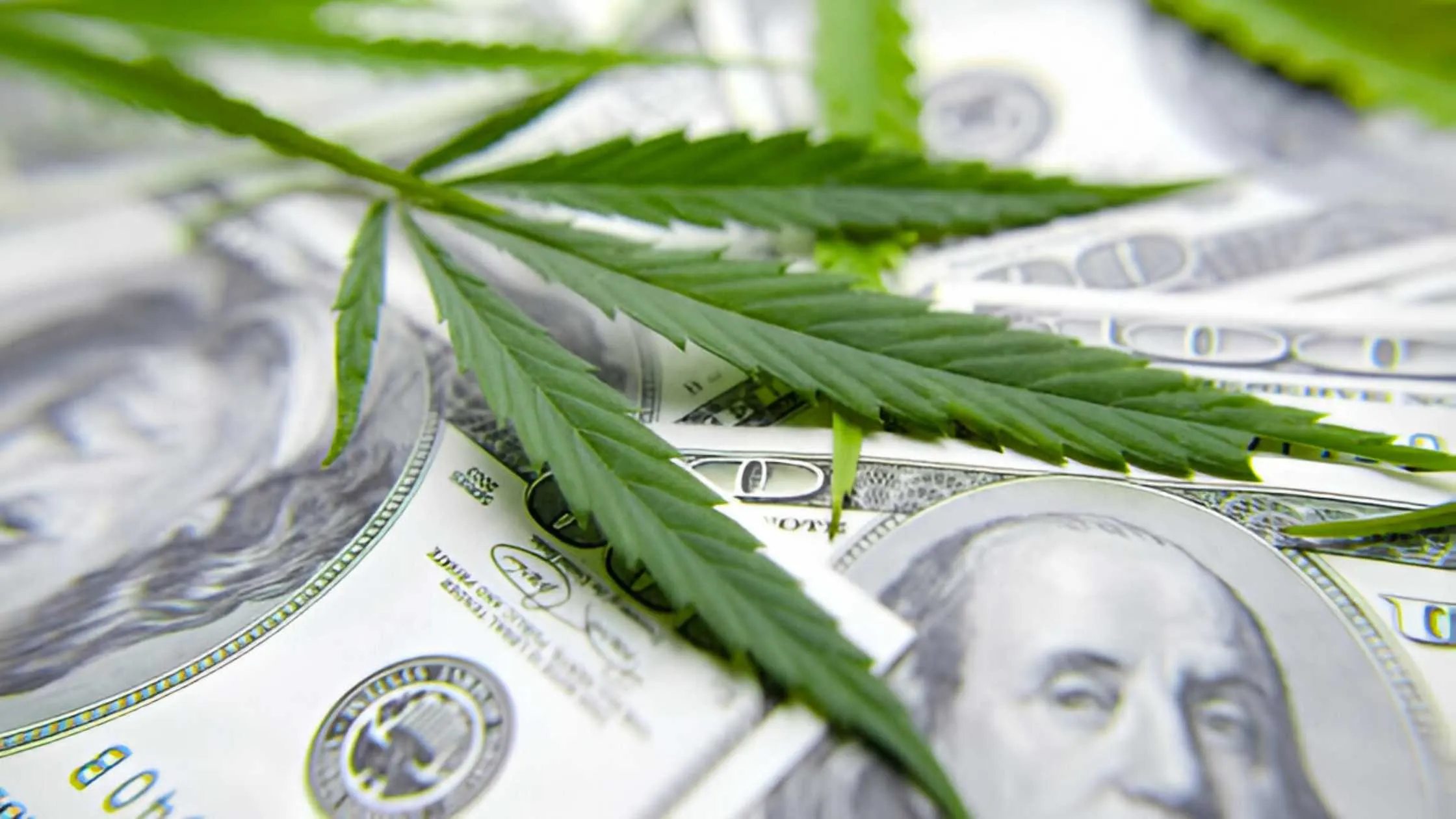Unpaid federal excise duty is piling up in Canada’s cannabis industry, with excise debt more than tripling to 52.4 million Canadian dollars ($40 million) as of March 2022, up sharply from CA$16 million owed in March 2021, according to an MJBizDaily analysis of Canada Revenue Agency data.
That suggests at least 20% of all federally regulated companies owe the federal revenue agency money, the latest sign that excise-duty burdens are weighing on already-struggling cannabis producers, industry officials say.
They cite falling marijuana prices and fierce competition as among the factors making it difficult for producers to pay their excise duties – which are levied on a variety of cannabis products – in a timely manner.
“The cannabis industry is making a choice, whether to pay its taxes or to keep the lights on,” Dan Sutton, CEO of British Columbia-based cannabis producer Tantalus Labs, told MJBizDaily.
Canada’s excise duty imposed on producers’ dried cannabis is either CA$1 per gram or 10% of the value of the gram, whichever is greater.
Different excise rules apply to various cannabis derivatives and other products such as edibles.
MJBizDaily asked the Canada Revenue Agency (CRA) for:
- The amount of cannabis excise duty in arrears for each of the past four fiscal years.
- The number of cannabis companies with overdue bills.
- A breakdown of that data by province.
In total, 254 individual cannabis businesses racked up CA$73 million in excise debt from March 2019 through March 2022, the CRA data shows.
However, of that total, roughly CA$52.4 million remains outstanding.
As of March 31, 2022, approximately 96% of the outstanding debt was from assessments in the past year, the CRA noted.
“The vast majority of outstanding amounts that enter the collections program are resolved within one year,” the CRA said in response to MJBizDaily queries.
Industry sources say the overdue taxes stem from a number of factors combining to weaken the financial footing of many businesses, including:
- Severe price compression over the past two years has limited many companies’ ability to pay bills on time.
- Heavy competition, as the number of federal cannabis licensees went from 342 in April 2020 to 634 in 2021 and 856 as of last week.
- A heavy tax burden that doesn’t discriminate between large and small companies.
The CRA calls those debts “undisputed,” meaning none of the businesses lodged an appeal with the federal tax agency.
Disputed amounts, where an objection was filed, totaled CA$1 million during the three years ending in March 2022.
More struggling companies
The number of cannabis producers with overdue excise tax duty has skyrocketed, as production licenses issued by the federal government surged 150% over the past two years and more companies suffered financial setbacks.
The number of cannabis companies with an undisputed CRA debt more than doubled to 141 as of spring 2022, from 68 last spring and 33 in 2020.
For perspective, Health Canada lists 856 federal cannabis licensees on its website, and many companies hold more than one license.
In March 2019, the number of cannabis companies with an undisputed debt stood at 12.
Most of the debt belonged to cannabis companies based in the Prairies – consisting of Alberta, Manitoba and Saskatchewan – where 36 businesses owed CA$21.6 million in overdue excise taxes as of March 2022, the data shows.
In Ontario, 51 businesses owed CA$17.3 million as of March 2022.
The data for remaining jurisdictions as of the same date is:
- 32 businesses in British Columbia had CRA debt worth CA$10.5 million.
- 11 companies in Quebec owed CA$1.8 million.
- 11 businesses in Atlantic Canada (consisting of New Brunswick, Newfoundland, Nova Scotia and Prince Edward Island) owed CA$1.2 million.
Clues in insolvency filings
Unpaid excise duty is showing up in larger numbers of Companies’ Creditors Arrangement Act (CCAA) filings, as the number of cannabis businesses shutting or restructuring their operations grows.
Since 2019, at least 30 licensed producers have sought creditor protection or closed their doors for good. Some managed to reopen after completing restructuring.
Recently, the CRA was listed as one of Eve & Co’s unpaid creditors, with CA$1.9 million owed to the agency, including CA$1.4 million in unpaid excise levies.
The Strathroy, Ontario-based producer received an order for creditor protection last month from the Ontario Superior Court of Justice.
Another company that filed for creditor protection, Pure Global Cannabis, owed CA$1 million to the CRA.
Two other cannabis producers also listed debts to the CRA when they received creditor protection, but the specific amounts weren’t disclosed:
- Sunniva, a cannabis producerbased in Vancouver, British Columbia.
- Figr Brands, which formerly owned Canada’s Island Garden, a licensed producer in Prince Edward Island.
Hydrx Farms, a small producer in Whitby, Ontario, that obtained creditor protection last year, also lists a small CA$3,500 CRA debt.
Some other companies, such as Green Relief, which became insolvent in 2020, owes money to the Receiver General of Canada and Health Canada. But no debt to the CRA was listed.
Tough decisions
Tantalus’ Sutton is spearheading a campaign calling on the government to reform the cannabis excise regime.
The campaign – composed of small and medium-sized cultivators – wants an end to the flat minimum per-gram tax as well as other changes based on a producer’s size.
Sutton said the current tax burden on regulated cannabis businesses is more than most of them can bear.
“I think you’ve got 141 licensed producers who had to make a choice between paying their employees and paying the excise tax, and they chose to defer their excise tax payments,” Sutton said, referring to the number of cannabis companies with an undisputed CRA debt as of March 2022.
Skyrocketing CRA debt by cannabis companies also means the Canadian taxpayer was denied revenue, he said.
“This means they (the government) will be extracting in aggregate far less tax, because you can’t extract it from insolvent companies,” Sutton said.
“So the optimization of the duty amount, and businesses’ survivability, is how taxpayers capitalize on the growth of the cannabis industry.”
He said cannabis prices are falling as input costs are rising.
“Ultimately,” Sutton said, “this is demonstrating clearly that in order to keep up with market price compression, keep up with the substantial inflation of inputs across all of our vendors, that excise tax that was untenable last year, has become unfathomably untenable now.”
Disclaimer: https://mjbizdaily.com/canadian-cannabis-producers-overdue-excise-taxes-more-than-triple-to-ca52-million
Posted by: Times Of Hemp , TOH, #TOH, #TimesOfHemp, https://www.timesofhemp.com





